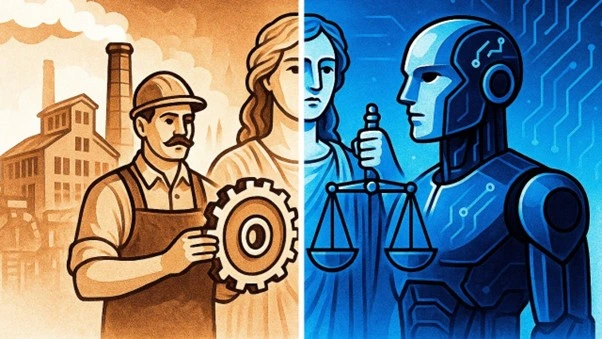Artificial Intelligence (AI) is transforming societies at an unprecedented pace, influencing everything from healthcare and education to economics and national security. As these technologies become increasingly embedded in daily life, critical issues of equity, ethics, and cooperation come to the forefront. These three principles are not just philosophical ideals; they are essential guidelines for ensuring that AI development and deployment benefit all of humanity, not just a privileged few. The age of AI must be marked not only by technological advancement but also by a deep commitment to social justice, moral responsibility, and international collaboration.
Equity in the context of AI refers to the fair distribution of its benefits and the prevention of harm to marginalized and underrepresented groups. Unfortunately, current AI systems often mirror and amplify societal inequalities. This stems largely from the data on which they are trained, data that frequently contains historical biases reflecting systemic racism, sexism, and other forms of discrimination. For example, facial recognition technologies have demonstrated significantly higher error rates for people with darker skin tones. Similarly, hiring algorithms have been found to downgrade resumes with names that appear to belong to women or people of colour.
Ensuring equity means making deliberate efforts to counteract these biases. This includes diversifying the teams developing AI technologies, ensuring that datasets are representative and inclusive, and creating auditing mechanisms to assess and mitigate biased outcomes. It also means providing equal access to AI tools and education, so that the transformative potential of AI can empower communities traditionally left behind by technological progress. Without addressing equity, AI risks becoming a tool of oppression rather than liberation.
Ethics in AI concerns the moral responsibilities of those who design, deploy, and regulate these technologies. At its core, this includes ensuring that AI respects human rights, maintains privacy, operates transparently, and can be held accountable for its decisions. One of the pressing ethical dilemmas is the use of AI in surveillance and law enforcement, where unchecked implementation can lead to significant violations of civil liberties. Another major concern is the spread of misinformation and deepfakes, which AI can generate with increasing sophistication.
To navigate these ethical challenges, a robust framework of principles and laws is necessary. Organizations and governments must establish guidelines around AI use that are informed by human rights, democratic values, and public consultation. The development of AI should also adhere to the principle of explain-ability, where users and regulators can understand how and why a system makes decisions. Additionally, there must be mechanisms in place to identify and correct harm when AI systems go wrong. Ethical AI requires more than good intentions; it demands structures for accountability, independent oversight, and recourse for those adversely affected.
AI development is not confined by national borders. Major advances often emerge from multinational corporations, and the impacts of AI, both positive and negative, are global in scale. Consequently, cooperation among nations is vital to ensure that AI technologies are used in ways that promote global stability, peace, and shared prosperity. Without such cooperation, AI could become a source of geopolitical tension and a tool for authoritarian regimes to entrench power.
The development of international norms and standards for AI is therefore essential. This includes agreements on the ethical use of AI in military applications, standards for data protection and algorithmic transparency, and mechanisms for sharing the benefits of AI across borders. Institutions like the United Nations and the OECD have already begun this work, but more inclusive and binding frameworks are needed. Developing countries, often excluded from global tech dialogues, must be given a seat at the table to ensure that AI policies reflect the diverse realities and needs of the global population.
Cooperation also extends to the sharing of knowledge and technological resources. Open-source AI tools and collaborative research initiatives can help level the playing field and democratize access to cutting-edge innovations. Furthermore, global academic and industry partnerships can foster innovation that is both technologically advanced and socially responsible. In an interconnected world, the success of AI in any one nation is tied to its responsible development and governance everywhere.
The rapid development of AI brings with it both promise and peril. The promise lies in its ability to address complex challenges, such as disease diagnosis, climate modelling, and education, more efficiently and equitably. The peril lies in its potential to exacerbate inequalities, erode privacy, and undermine democratic institutions if left unchecked. Navigating this complex terrain requires a renewed commitment to equity, ethics, and cooperation.
Policymakers, technologists, educators, and civil society must work together to shape an AI future that aligns with shared human values. This means investing in AI literacy, promoting inclusive innovation, and holding powerful actors accountable. It also means resisting the temptation to treat technological capability as synonymous with progress, and instead asking: Who benefits? Who is harmed? And how can we do better?
The age of AI will be defined not just by what machines can do, but by how humanity chooses to use them. By cantering equity, ethics, and cooperation, we can ensure that AI serves as a tool for collective empowerment, rather than division or domination. The choices we make today will determine whether AI contributes to a more just and inclusive world, or deepens the divides we are already struggling to overcome.








